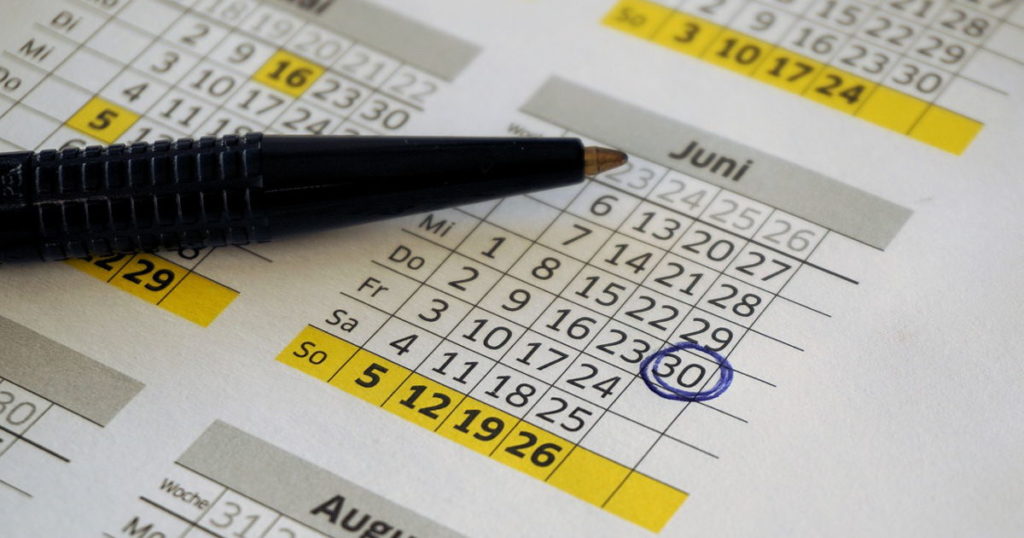One of the biggest things that you have to confront as someone who wants to learn a language is time dedication. It will take time, and you’ll have to put some shifts in but there are so many ways to pack learning into all the small parts of your day which are otherwise virtually wasted! Busy lives for busy times – we travel, work, play, eat, go out and sleep, and between them all, it can feel difficult to learn something new. Learning something new, though, is extremely important to keep in our routine, and a language is one of the single most useful and most stimulating things we can learn. It’s essential to find time to study languages when you are in the learning process.
So how can you make absolutely sure to keep up the routine and keep your learning ticking along and find time to study languages even at the busiest of times?
Take advantage of your daily commute.
On the way to work, some gaze out the window, others at their phone screens or out of the window. Fair enough sometimes you’ll just be too damn tired to learn much, but even so, your commute is an ideal time to expose yourself to the language you’re learning and fit in a good piece of learning into a part of your day which is otherwise wasted. Many of us will pop our earbuds in and sink into the seat, and that’s all good! But try putting on foreign music or audio lessons instead of your favourite tunes. Foreign music can whisk you away from the world whilst still stimulating learning. If you’ve got a long train journey then try audio lessons, they’re very engaging and pleasant to listen to and you’ll learn as time flies by on your journey. It’s the perfect accompaniment for your commute.
 Make waiting time study time
Make waiting time study time
How much time do we waste waiting? Waiting for this, waiting for that..for the bus, for your lunch..too much?! Make waiting time study time and be prepared for those times where you’re plainly wasting time. It’s not difficult to keep some flashcards in your pocket, whip them out when you’re waiting for something and go over some phrases. Your brain will love this kind of thing – it’s going to help you memorise information for the long term if you keep exposing yourself to it multiple times a day, even for a moment or two.
Listening and learning in the background
We can absorb information from both the foreground and the background. Things you may not consciously register may still enter your memory – it’s partly why we have a ‘gut instinct’ about something we feel we haven’t formerly learned. It’s a wonderful part of the brain and our psychology which you can use to help you learn. Try exposing yourself to the language you’re trying to learn whenever you can – if you’re typing at your PC then have foreign radio or TV playing in the background. Radio is a great way to access this kind of exposure, you can use digital radios or online radio stations to tune into programs from your target language.
Staying informed in your language
Having a social contextual knowledge of the native country of your target language is excellent in assisting your learning. Staying informed of current events will increase your understanding of the people of that nation, and their social issues, big events, politics and other major news. This is not only useful in conversation but very useful in broadening your written vocabulary and grammar, as well as helping you with idioms, expressions and colloquial terms.
 Bite-sized learning
Bite-sized learning
We’ve already talked about applying micro-learning into your daily routine so let’s think of a few other days you can fit bite-sized learning opportunities into your day.
Look up words for the things you’re eating
If you hear a good phrase in your own language, look it up in the one you’re trying to learn
Talk to yourself in the language you’re trying to learn instead of your own one (if you talk to yourself!)
There are so many opportunities to bite sized learn. But it can be overwhelming bearing them all in mind. Bilingua is an excellent app that solves this, giving you the ability to learn in small or large amounts at any time of day with the assistance of native speakers. Get it ingrained in your habit that whenever you’ve got a spare moment and go to pick-up your phone, you open Bilingua first and complete a small task. It’ll become habit quicker than you know it!
Study before bed
Instead of going straight to social media or messaging before bed, have 10 minutes dedicated to some light learning. A study published at the Public Library of Science as well as many other studies have examined the link between sleep and memory, and they not only discovered that you’re more likely to learn something if you learn it before sleep but retain it in the long term too! Reading a book before bed can really improve your learning and vitality. Give your eyes a needed rest from screens and learn something light and pleasant.
To conclude, there are many spare minutes which you can use for learning. There are many ways you can find time to study languages. Just imagine if you could effectively use every spare minute you had? Now that’d be hard and would take some training, but the possibilities for learning would be amazing! Even using some of these can greatly accelerate your learning, you may well be surprised at quite how much goes on when you expose yourself to your language as often as you can. The brain is an amazing thing so don’t underestimate its capacity to learn and try some novel learning techniques in your day to day routines.
Liked this post? Check out these relevant links!
Make the right language learning plan for you!
The benefits of practising languages online
Foreign Language Learning: Avoid The 10 Common Mistakes
Also published on Medium.



